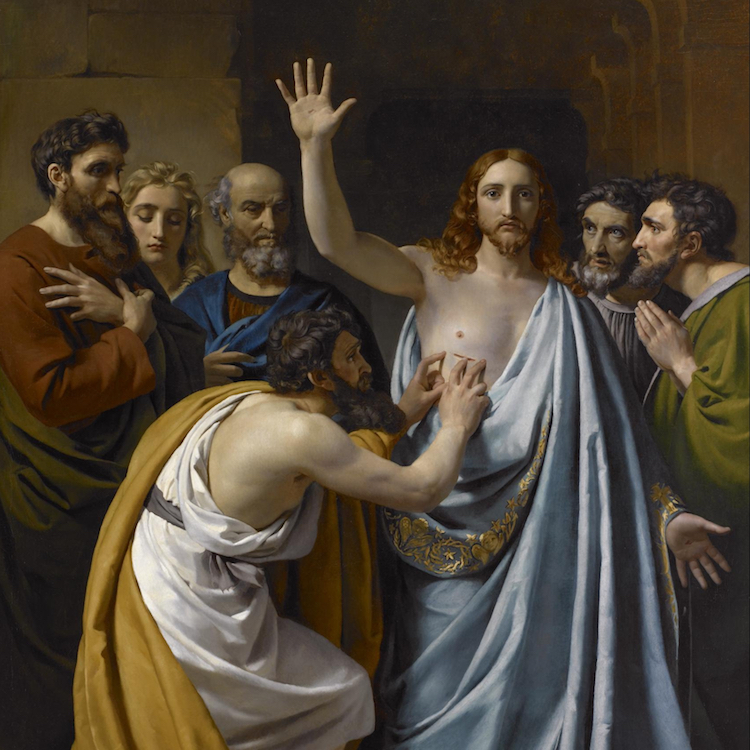There’s an inspiring book called The Hiding Place which was written many years ago by a Dutch woman named Corrie ten Boom. It tells the story of how she and her family lived in Holland before and during World War II. They were Christians who took their faith very seriously, and so, during the German occupation of their country, they became part of a secret underground movement hiding Jews from the Nazis. The ten Boom family helped save a number of lives, but eventually they were discovered and arrested by the Gestapo, the Nazi secret police. Corrie and her sister Betsie were sent to a German concentration camp for women, and the two women used the opportunity to share with the other prisoners a message of hope rooted in the Gospel. Under the harsh conditions, Betsie grew steadily weaker, and her dying words to her sister were, “Remember, Corrie, we must love and forgive our enemies, not hate them.”
Corrie survived the war, the only member of her family to do so, and for the next thirty years she carried on a ministry of reconciliation; she went throughout Europe, telling her story and speaking of the need for emotional healing and forgiveness. On one occasion a man came up to her after her talk and challenged her, “Those are fine-sounding words you spoke on forgiveness, but do you really believe them?” When Corrie said that she did, the man continued, “Then you should know that I was a guard at the concentration camp where your sister died. Can you forgive me?” Describing this moment in her book, Corrie said that she was immediately overwhelmed by feelings of intense hatred and revulsion toward this man standing in front of her; she loathed him as a living embodiment of evil. Realizing what was happening in her heart, she desperately prayed to God for help, asking that He replace this hatred with love—and He did. Corrie suddenly saw the light of Christ shining through this former Nazi concentration camp guard, and to his amazement, she was able to look him in the eye and truthfully say, “Yes, in the Name of Jesus, I do forgive you.” We may never have an experience this dramatic, but Corrie’s example shows us how we must desire to do what’s right and rely upon God’s grace to accomplish it. All of us have times when we’re challenged to practice what we preach—and only God’s grace makes this possible.
The verses (3:10-18) in Luke’s Gospel can be divided into two sections: a dialogue between John the Baptist and his hearers on specific things they should be doing, and John’s own description of the coming Messiah or Savior. We generally concentrate on the latter message, especially as Christmas draws near; however, we must not overlook what precedes it: namely, John’s emphasis on living out the message of salvation in concrete, practical ways. When the crowds asked him, “What ought we to do?,” John’s answer was always very down-to-earth. People, he said, were to share their food and clothing with those in need, tax collectors were to be honest and fair in their duties, and soldiers were to be truthful and respect the rights of others. John made it clear that it wasn’t enough for the crowds simply to listen to and believe in his preaching; he expected them to change their behavior, if necessary, and to prepare a place for the Messiah in their hearts. In this way the Lord would be able to rejoice over His people, fulfilling the words of the prophet Zephaniah (3:14-18); in this way God’s people would themselves be able to rejoice, as St. Paul describes in his Letter to the Philippians (4:4-7). Christian joy is based not on some vague idea of eventual happiness, but on an active and personal relationship with Jesus Christ—a relationship whose effects are meant to be very visible in our own lives.
Following World War I, many nations sent representatives to the peace talks being held in Paris, including several Arabs representing their tribes in Palestine. These visitors from the desert were astonished that the bathrooms in their hotel had seemingly unlimited amounts of clean running water—so when they went home, they secretly took the bathroom faucets with them, thinking these fixtures magically produced water. Someone had to explain to the Arabs that the faucets were useless unless connected to pipes that were themselves connected to a source of water. In the same way, our faith is useless unless it somehow genuinely unites us to Jesus Christ, the only Source of true and eternal life (homily notebook, “Faith”). Merely professing our faith in Him accomplishes nothing unless our words are backed up by good deeds.
Christmas is supposed to be a time of good will toward all, and even though we may be living in a post-Christian society, there are still millions of Americans who go out of their way to be a bit friendlier and more helpful to their neighbor during this time of year. New Year’s Day is traditionally a time for making resolutions and starting with a clean slate, and even though most of these resolutions soon fall by the wayside, the custom itself is an annual reminder of our ongoing need to change and improve ourselves. If even non-religious members of our society more or less understand and respect these customs, how much more should we as Christians make sure we are truly living out our faith and trying to become more Christlike. Santa Claus is supposedly making his list and checking it twice; we should be checking our own lives to see if our words of faith are backed up by loving deeds. Do we practice what we preach? Do we live out our faith not only on the weekends, but also during the week? Do we love others in Christ’s Name, and do our part to help those in need? Can people tell from our example that we’re Christians? Do we treat others as we wish to be treated? Do we admit our faults and seek forgiveness? Do we in turn forgive others?
Corrie ten Boom’s experience with forgiveness applies to every other aspect of Christian living—namely, we can’t do it on our own without God’s help. She was honest enough to admit to the Lord the hatred she felt toward the former concentration camp guard, and humble enough to beg Him to replace it with His love—and in that way a miracle of grace occurred. Only if we have the same honesty, humility, and commitment can we be sure that our hearts are prepared for the Lord’s coming.






